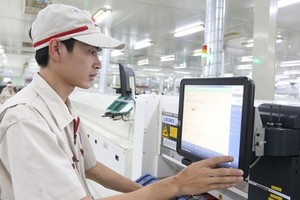
Today, at the Ho Chi Minh City Innovation Startup Center (SIHUB), the Ministry of Science and Technology (MOST) and the HCMC Department of Science and Technology co-hosted a conference on developing the national innovation startup ecosystem for 2025 and introducing new venture capital policies.
According to the Department of Science and Technology, Ho Chi Minh City’s innovation ecosystem in 2025 is expected to be dynamic, diverse, and large in scale. Currently, the city is home to around 2,000 innovative startups, mainly in artificial intelligence (AI), e-commerce, fintech, and agri-tech.
The city has set a goal to place its innovation startup ecosystem among the world’s top 100 most dynamic cities by 2030, focusing on three main pillars: improving startup support policies, investing in infrastructure, and developing high-quality human resources.
Innovation startups and venture capital are seen as new driving forces for both the city’s and the nation’s growth. From now until the end of 2025, Ho Chi Minh City is finalizing two major projects: building the city into an international center for innovation and entrepreneurship by 2030, and establishing a local venture capital fund, according to Director Lam Dinh Thang of the HCMC Department of Science and Technology.
The conference also introduced Decree No. 264/2025/ND-CP on the National Venture Capital Fund and local venture capital funds. Participants analyzed the mechanisms for managing venture funds, the importance of regional connectivity within the innovation ecosystem, and the key role of local authorities in supporting startup development during the 2025–2030 period.
Director General Pham Hong Quat of the Department of Startup and Technology Enterprises under the Ministry of Science and Technology emphasized that research and development of new policies are essential. Although Vietnam has implemented numerous training, mentoring, and networking programs to foster its ecosystem, investment support remains limited. The country’s venture capital volume still trails behind Singapore, Indonesia, and Malaysia.
Participants also highlighted the importance of stronger connections between businesses, incubators, universities, and venture funds. Training and incubation programs for innovation and entrepreneurship were identified as vital tools to enhance the capacity and entrepreneurial spirit of the startup community in Ho Chi Minh City.
























